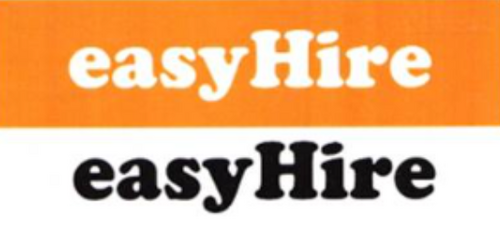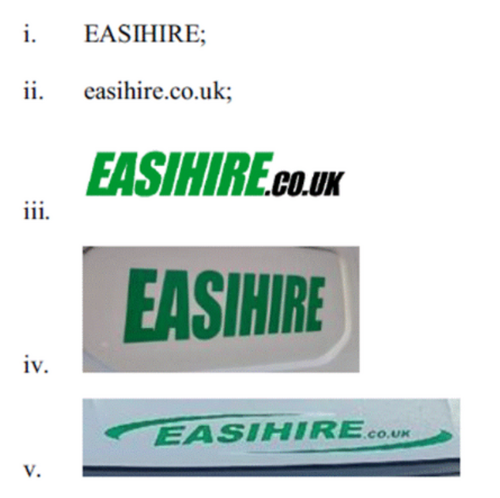In brief
- Trade marks that are not used for a continuous period of five years without proper reason become vulnerable to revocation. Such non-use also provides a complete defence to infringement claims.
- A trade mark owner must show 'genuine' use of the trade mark – the use must be more than merely token, relate to the goods or services for which the trade mark is registered, be by way of real commercial exploitation and be consistent with the essential function of a trade mark i.e., to guarantee origin.
- The court found no genuine use where easyGroup's websites directed users to affiliated sites or offered franchising/technology services, i.e., the use was not in relation to vehicle rental services, for which the trade mark was registered.
- The judgment is a timely reminder for UK trade mark owners about the use requirement. From 1 January 2026, comparable UK trade marks created post-Brexit will potentially become vulnerable to non-use revocation attacks if the owner cannot show genuine use in the UK, with EU use no longer counting as evidence of genuine use in the UK.
Background
This is the fifty-second set of trade mark and passing off proceedings easyGroup has brought in 10 years. Despite this aggressive litigation strategy, easyGroup has again been unsuccessful on the grounds of non-use, as reported by us here in some of its previous cases.
easyGroup holds a series of two trade marks registered in class 39 (amongst others) for rental and hire of motorised vehicles and related advisory and information services. The judgment focussed on the black and white mark, as the orange mark was not directly in issue.

easyGroup brought trade mark infringement proceedings against Jaybank which was trading under the sign 'EASIHIRE' for vehicle rental and sale services, using it in the following ways:

The Intellectual Property Enterprise Court decision
The court dismissed easyGroup's infringement claim against Jaybank. Whilst Jaybank's use of 'EASIHIRE' would have infringed easyGroup's 'easyHire' mark, it had a complete defence to infringement based on non-use of easyGroup's mark.
Infringement
The contested issue on infringement was whether Jaybank's use of the sign gave rise to a likelihood of confusion on the part of the public.
The court held that the trade mark and the sign were aurally and conceptually identical. Visually, the differences were limited to the font used, use of upper/lower case letters and a single letter substitution ('i' for 'y'). The average consumer would give limited significance to these differences and would not likely be troubled by the letter substitution, seeing it as a typographical error at most.
There was no direct evidence of confusion, which the court found to be a neutral factor.
Meanwhile, whilst not strongly distinctive, easyHire was not self-evidently a word used generally in the English language and was therefore "sufficiently distinctive" to serve as a trade mark.
Given the above, and taking into consideration the average consumer's imperfect recollection, the court concluded there was a likelihood of confusion between the mark and the sign. Subject to any defence, Jaybank's use of the sign infringed easyGroup's mark.
Defence of non-use
Jaybank did not make a counterclaim seeking to revoke (or partially revoke) easyGroup's mark, but instead relied on its non-use as a defence to infringement under section 11A of the Trade Marks Act 1994 (TMA).
The burden was on easyGroup to prove genuine use in accordance with the principles summarised in easyGroup v Nuclei. 'Genuine' use means: (i) actual use of the trade mark by the proprietor or authorised third party; (ii) the use must be more than merely token; (iii) it must be consistent with the essential function of a trade mark (i.e., to guarantee origin); (iv) it must relate to goods or services already marketed or about to be marketed; and (v) it must be by way of real commercial exploitation. In particular, there must be solid and objective evidence of effective and sufficient use on the market concerned (probabilities or suppositions will not suffice).
easyGroup relied on two specific uses of the mark, on two websites with the addresses easyHire.mobi and easyHire.biz.
Section 46(3) TMA prevents a trade mark owner relying on any use of the trade mark in the three-month period before an application for revocation is made (or the start of the action to defeat a trade mark infringement claim under section 11A TMA). In relation to easyHire.mobi, there was no evidence of easyGroup making any use of the mark on this website outside the three-month period, and so easyGroup could not rely on this website to prove genuine use.
In relation to easyHire.biz, there was no issue with the three-month window. The trade mark featured prominently on the website, which featured various 'easy' hire brands and a link to the easyToolhire website. The easyHire.biz website stated, "We operate a global, fast-growing, cloud-based technology platform and licensee network for the multi-billion pound sterling equipment hire industry". The court held the average consumer was likely to understand this meant that easyHire provided technology to a network of franchisees/licensees in the hire industry, but there was nothing in the evidence to suggest that easyHire provided vehicle rental services.
The messaging on the easyToolhire website was similar, stating easyHire provided franchising and technology services to their franchisees. The court held that the average consumer would not have believed the easyHire.biz (or the easyHire.mobi) operator to be the provider of, or guarantor as to quality of, the rental services offered by third-party suppliers through their website, even if they were part of the same group. The Facebook page of easyHire.biz was similar in that the services offered were in relation to franchisees and technical support.
There was little evidence provided about the .biz website: no start date for when the website went online and no figures for the number of UK views. easyGroup relied upon the accounts of easyHire Technologies Limited to evidence use of the website but these only demonstrated that the company had traded modestly.
The court therefore found that the easyHire trade mark had not been used for the vehicle rental services for which it was registered. easyGroup advanced no proper reasons (or any at all on the face of the judgment) for non-use. Accordingly, Jaybank had a valid defence of non-use to infringement, and easyGroup's claim was dismissed.
Takeaways
This decision emphasises that UK trade mark law operates on a strict 'use it or lose it' basis. Courts will rigorously scrutinise evidence of use and will not hesitate to find marks liable for revocation where proprietors cannot demonstrate genuine commercial exploitation.
Evidence is everything
To demonstrate use, brand owners must collect and retain sales invoices, catalogues, marketing material, packaging samples, dated website screenshots, and advertising spend data. Evidence should be kept in date order to ensure it clearly falls within the relevant five-year period.
Use must match the registration
The mark must be used for the specific goods or services for which it is registered. Use for related but distinct services (such as technology services rather than vehicle rental services) will not suffice. Where possible, ensure the mark is used prominently on packaging, labels or directly on goods, and not just on invoices or order forms.
The Brexit deadline looms
From 1 January 2026, comparable UK trade marks - those automatically created by the UK Intellectual Property Office on 1 January 2021 following Brexit to preserve protection for pre-existing EU trade marks - that have not been used in the UK in the period post-Brexit will become vulnerable to revocation. Evidence of pre-Brexit use of those marks in the EU will no longer count.
Rights holders should review their portfolios and assess whether they are in a position to substantiate UK use (bearing in mind the three-month exception under section 46(3) TMA explained above). If use is only planned in the medium to longer term, a strategy including new UK filings may be advisable where there is a legitimate commercial rationale, though care must be taken to avoid arguments of bad faith based on evergreening.
Non-use is a powerful defence
This case shows that non-use provides defendants with a complete defence to infringement claims, even where infringement would otherwise be established. The three-month proviso in section 46(3) TMA means that proprietors cannot simply commence use once litigation is threatened to try and avoid a non-use defence.